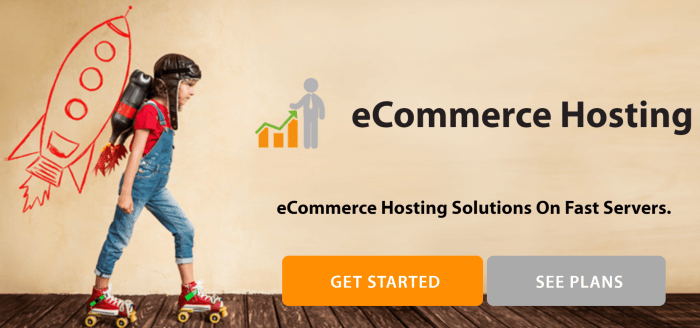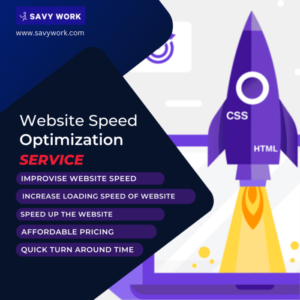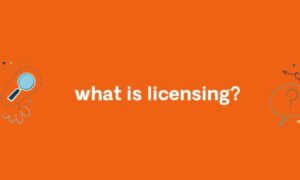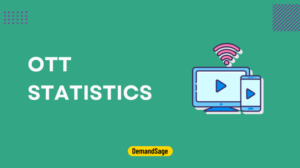
Web hosting for ecommerce websites is the backbone of online retail, crucial for ensuring that your digital storefront operates smoothly and securely. With the right hosting solution, businesses can not only enhance performance but also build customer trust, which is essential for success in the competitive e-commerce landscape.
This discussion will delve into the essentials of e-commerce web hosting, exploring various types of hosting options, critical security features, and how effective hosting integrates with marketing strategies to boost visibility and sales. By understanding these factors, e-commerce businesses can make informed decisions that pave the way for growth and customer satisfaction.
Web Hosting Basics for E-commerce

Reliable web hosting is the backbone of any successful e-commerce website. Choosing the right hosting solution ensures that your online store remains accessible, fast, and secure, which are all crucial factors for retaining customers and driving sales. In an increasingly competitive online market, the performance of your website can significantly influence your business’s bottom line.Web hosting affects not only the speed and availability of your website but also its security and scalability.
A slow or unreliable website can lead to a poor user experience, resulting in abandoned carts and lost sales. Therefore, understanding the various types of web hosting solutions available, and their respective advantages and disadvantages, is vital for any e-commerce entrepreneur.
Types of Web Hosting Suitable for E-commerce
There are several types of web hosting services, each offering unique features that cater to different business needs. Here’s an overview of the most common types:
1. Shared Hosting
This is an economical option where multiple websites share the same server resources. While it’s budget-friendly, it may not be ideal for high-traffic e-commerce sites due to potential slowdowns.
2. VPS Hosting
Virtual Private Server (VPS) hosting offers a dedicated portion of server resources, providing more power and better performance than shared hosting. This is suitable for growing e-commerce businesses that require more control and reliability.
3. Dedicated Hosting
This option gives you an entire server dedicated to your website, offering the highest level of performance, security, and control. It’s ideal for large e-commerce enterprises with high traffic and complex requirements.Understanding the nuances of these hosting types can help you make an informed decision that aligns with your e-commerce goals.
Comparison of Popular Web Hosting Providers for E-commerce
When selecting a hosting provider for your e-commerce site, it’s essential to compare features, performance, and pricing. Below is a comparison table of some popular web hosting providers that cater specifically to e-commerce needs:
| Provider | Type | Features | Starting Price |
|---|---|---|---|
| Bluehost | Shared/VPS | Free SSL, 24/7 Support, E-commerce Tools | $2.95/month |
| SiteGround | Shared | Daily Backups, Free CDN, 99.99% Uptime | $3.99/month |
| InMotion Hosting | VPS/Dedicated | Free SSL, SSD Storage, 90-Day Money-Back Guarantee | $29.99/month |
| HostGator | Shared/VPS | 1-Click Installs, Unmetered Bandwidth, Free Website Builder | $2.75/month |
| Shopify | Specialized E-commerce | Payment Gateway Integration, SSL Security, Sales Reports | $29/month |
Selecting the right hosting provider is critical for your e-commerce success. Each provider offers unique features that can align with your specific needs, so be sure to assess your business model and growth projections when making your choice.
Security Features for E-commerce Hosting
In the digital age, ensuring the security of e-commerce websites is paramount. As online shopping grows, so does the risk of cyber threats. A robust security system protects sensitive customer data and enhances the overall trust in your online store, leading to higher conversion rates and customer loyalty. This section will cover essential security measures e-commerce websites should implement to safeguard their operations.
Essential Security Measures for E-commerce Websites
To effectively protect your e-commerce website, it’s crucial to implement a combination of security measures. These strategies not only shield your site from potential threats but also reassure customers that their personal and financial information is safe.
- Regular Software Updates: Keeping your web hosting software, content management system, and plugins updated is vital. Frequent updates patch vulnerabilities that could be exploited by cybercriminals.
- Strong Password Policies: Implementing policies requiring strong passwords for users and administrators helps prevent unauthorized access. Encourage the use of complex passwords and regular changes.
- Firewall Protection: A robust firewall acts as a barrier between your website and potential threats, filtering out harmful traffic before it reaches your site.
- Regular Backups: Conducting regular backups of your website ensures that you can quickly restore data in the event of a breach or data loss.
Role of SSL Certificates in E-commerce
SSL (Secure Socket Layer) certificates play a crucial role in securing online transactions. They encrypt the data exchanged between the user’s browser and the server, making it almost impossible for hackers to intercept sensitive information like credit card numbers and personal details.
“Websites with SSL certificates display a padlock symbol in the address bar, indicating a secure connection and enhancing customer trust.”
By implementing SSL certificates, e-commerce websites can:
- Increase Customer Confidence: Customers are more likely to complete a purchase when they see the padlock symbol, knowing their data is protected.
- Improve Rankings: Search engines prioritize secure websites, giving SSL-enabled sites a ranking boost.
- Prevent Phishing Attacks: SSL certificates help in authenticating your website, making it harder for hackers to create fake sites aimed at scamming customers.
Implementing Spam Blockers and Security Software
Spam blockers and security software are essential components in maintaining an e-commerce website’s integrity. They help prevent unwanted traffic and protect against malicious attacks.Many e-commerce platforms offer built-in security tools. However, additional measures can be taken to enhance protection further. These include:
- Anti-Malware Software: Installing reputable anti-malware software can detect and remove malicious files before they cause harm.
- CAPTCHA Integration: Adding CAPTCHA to forms can help prevent automated spam submissions, ensuring only genuine users interact with your site.
- Web Application Firewalls (WAF): A WAF monitors and filters incoming traffic, blocking harmful requests and protecting against common vulnerabilities.
Integrating Marketing Strategies with Web Hosting
In the competitive landscape of e-commerce, the synergy between web hosting and marketing strategies cannot be overstated. A robust web hosting service not only ensures your online store remains accessible but also plays a vital role in how effectively your marketing efforts translate to sales. Understanding this relationship can greatly enhance your e-commerce success.Web hosting impacts search engine marketing (SEM) for e-commerce websites in several significant ways.
First, the speed and reliability of your hosting service influence your website’s performance, which is a critical factor in search engine rankings. A faster website enhances user experience, leading to lower bounce rates and higher conversion rates, both of which are favorably assessed by search engines. Moreover, a hosting provider that offers SSL certificates can boost your website’s credibility, as security is increasingly prioritized by search engines.
In addition to these technical aspects, the geographical location of your server can affect local search visibility. For instance, e-commerce stores targeting specific regions can benefit from hosting their sites on servers located closer to their target audience, thereby improving load times and user experience.
Web Design and Development for Online Visibility and Sales
The importance of web design and development in promoting online visibility and driving sales cannot be overlooked. An appealing, user-friendly website design is essential for making a positive first impression and retaining visitors. When considering web design, various elements contribute to overall effectiveness. Elements such as responsive design, intuitive navigation, and aesthetic appeal are critical to engaging users. A responsive design ensures that your website functions seamlessly across all devices, including smartphones and tablets, which is increasingly relevant in today’s mobile-driven market.
Intuitive navigation allows users to find products easily, reducing frustration and increasing the likelihood of purchase. Additionally, aesthetics play a crucial role in brand perception; a well-designed site can enhance brand credibility and trustworthiness.To further enhance online visibility and sales, here are key aspects to consider:
- -friendly design elements, such as optimized images, meta tags, and headings
- Integration of social media sharing buttons to broaden reach and engagement
- Incorporation of high-quality content that resonates with your target audience
- Utilization of analytics tools to track user behavior and improve site performance
Video Marketing Strategy Leveraging Web Hosting Features
Video marketing has become an integral component of e-commerce strategies, and when integrated with web hosting features, it can significantly enhance user engagement. The use of videos can effectively communicate product value, demonstrate usage, and build a connection with consumers.To capitalize on video marketing, consider hosting your videos on a platform that offers high bandwidth and fast loading times to ensure seamless playback for users.
This can be pivotal in retaining visitors who might otherwise leave due to buffering or slow load times. Additionally, embedding videos directly into product pages can provide immediate context, helping shoppers make informed decisions.For an effective video marketing strategy:
- Create short, engaging product demonstration videos that highlight features and benefits
- Use storytelling techniques to create emotional connections with potential buyers
- Encourage user-generated content by inviting customers to share their experiences via video
- Incorporate video testimonials from satisfied customers to build trust
By leveraging these strategies alongside a reliable web hosting service, e-commerce businesses can enhance their online visibility, improve user engagement, and ultimately drive sales growth.
Concluding Remarks

In summary, selecting the right web hosting for ecommerce websites is a vital step toward building a successful online business. By prioritizing reliable hosting solutions with robust security features and strategic marketing integration, entrepreneurs can enhance their website’s performance and create memorable shopping experiences for their customers. Moving forward, these insights will guide you in establishing a strong digital presence that stands out in the crowded e-commerce market.
FAQs
What is the best type of hosting for an e-commerce website?
The best type of hosting for an e-commerce website usually depends on the size and needs of the business, but VPS or dedicated hosting is often recommended for better performance and security.
How do I ensure my e-commerce site is secure?
To ensure your e-commerce site is secure, implement SSL certificates, use reliable web hosting with strong security features, and regularly update your software and plugins.
Can I switch web hosting providers easily?
Yes, switching web hosting providers can be done, but it’s important to prepare for the transition to minimize downtime and ensure data migration is handled smoothly.
Does web hosting affect for my e-commerce site?
Yes, web hosting can significantly affect ; factors like site speed, uptime, and server location can influence your search engine rankings.
How often should I back up my e-commerce website?
You should back up your e-commerce website regularly, at least once a week, or more frequently if you make frequent updates or have a high volume of transactions.





